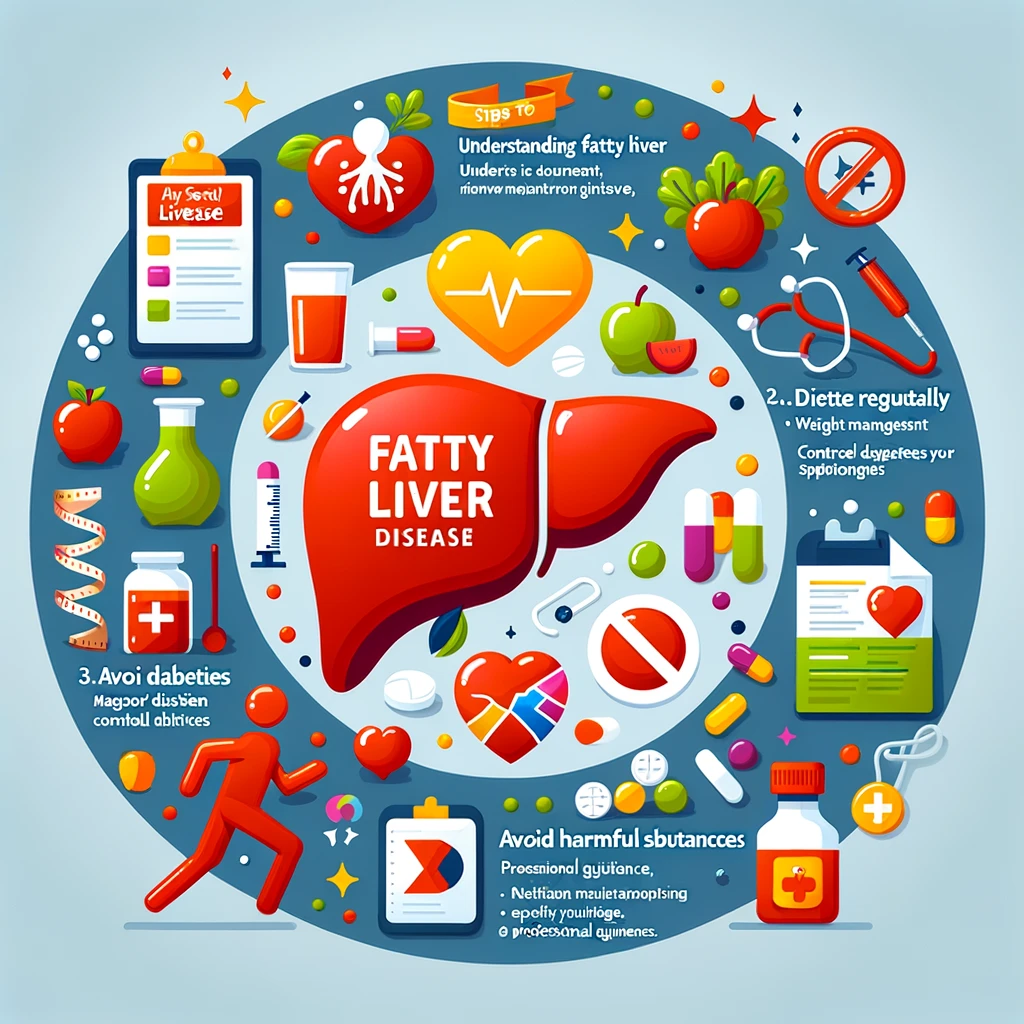Fatty liver, also known as hepatic steatosis, is a common condition where excess fat accumulates in the liver. This condition can be divided into two types: alcoholic fatty liver disease (AFLD) and nonalcoholic fatty liver disease (NAFLD). While AFLD is due to excessive alcohol consumption, NAFLD is associated with various factors such as obesity, type 2 diabetes, and metabolic syndrome.
Understanding the type and cause of fatty liver is crucial as it guides the treatment strategy. This article explores various approaches to manage and treat fatty liver, aiming to restore liver health and function.

Understanding Fatty Liver
Before diving into treatment strategies, it’s essential to understand what fatty liver entails. In fatty liver disease, excess fat buildup in liver cells leads to inflammation and potential damage. If not addressed, it can progress to more severe liver conditions like fibrosis, cirrhosis, or liver cancer. Symptoms might not be prominent in the early stages, making regular check-ups important for early detection.
Dietary Changes
A cornerstone in treating fatty liver involves dietary modifications. The goal is to reduce liver fat, manage weight, and decrease the risk of liver inflammation:
- Reduce Caloric Intake: Lowering calorie intake can lead to weight loss, crucial for reducing liver fat.
- Increase Fiber Intake: Foods high in fiber such as fruits, vegetables, and whole grains can improve liver health.
- Cut Down on Sugars and Saturated Fats: Reducing consumption of high-sugar foods and drinks, along with saturated fats, is vital.
- Balance Protein Intake: Incorporate lean protein from sources like chicken, fish, and legumes, which do not strain liver function.
Exercise Regularly
Regular physical activity is another effective way to combat fatty liver. Exercise helps in burning triglycerides for fuel and can reduce liver fat. A combination of aerobic exercises like walking, cycling, or swimming, and resistance training, can be beneficial. Aim for at least 150 minutes of moderate-intensity exercise per week.
Weight Management
For those overweight or obese, losing weight can significantly reduce liver fat. A weight loss of 5% to 10% of body weight is often recommended. However, it’s important to lose weight gradually, as rapid weight loss might worsen liver health.
Control Diabetes and Manage Cholesterol
Managing blood sugar levels and cholesterol can help in treating NAFLD. Medications, along with lifestyle changes, may be necessary to control diabetes, reduce cholesterol levels, and lower blood pressure.
Avoid Harmful Substances
Alcohol can exacerbate liver conditions, so abstaining or reducing alcohol intake is crucial in treating AFLD and NAFLD. Similarly, avoiding unnecessary medications or supplements that can harm the liver is important.
Medications and Supplements
Currently, there are no specific medications approved for NAFLD. However, treatments for underlying conditions such as diabetes, obesity, and hyperlipidemia can indirectly benefit fatty liver. Some studies suggest that Vitamin E and omega-3 fatty acids might help reduce liver fat, but they should only be taken under medical supervision.
Regular Monitoring and Professional Guidance
Regular follow-ups with a healthcare provider are important to monitor the liver condition and the effectiveness of the treatment plan. This may include blood tests, imaging studies, and sometimes liver biopsies.
Experimental Treatments and Lifestyle Integration
Research into new treatments for fatty liver is ongoing. This includes experimental drugs, surgical options, and lifestyle integration techniques aimed at improving liver health and function.
Conclusion
Fatty liver is a manageable condition with the right lifestyle changes and medical guidance. By understanding the nature of the disease and adopting comprehensive treatment strategies, individuals can significantly improve their liver health. It’s crucial to maintain a balanced diet, engage in regular physical activity, manage body weight, and avoid substances harmful to the liver. With dedication and the right approach, reversing the effects of fatty liver and restoring overall health is achievable. Remember, the journey to recovery begins with the first step towards a healthier lifestyle.




